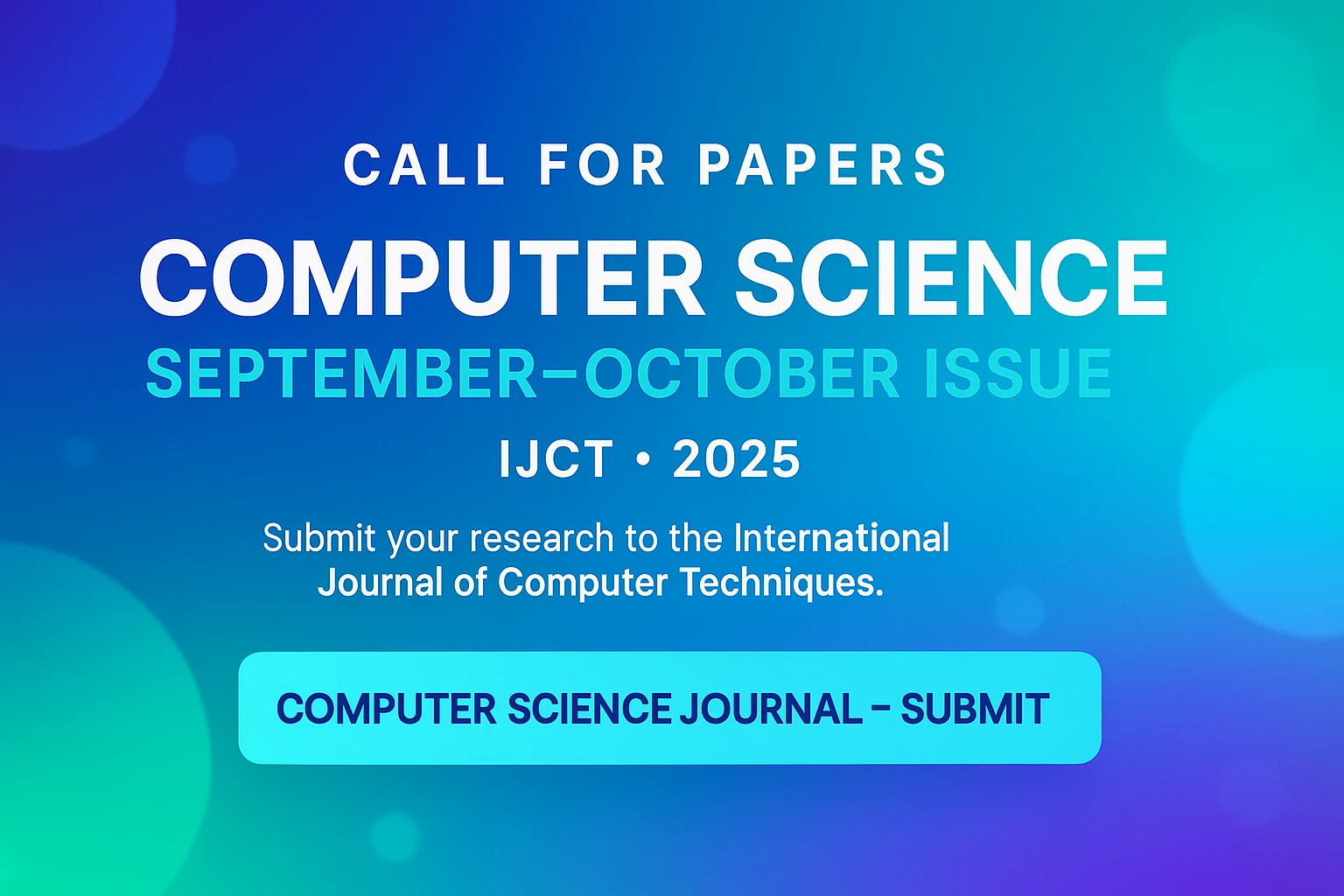International Journal of Computer Techniques Volume 12 Issue 4 | Assessment of Black Carbon Impact on Himalayan Glacier Melting: Integrating Atmospheric Modelling and AI-Driven Predictive Analytics
Assessment of Black Carbon Impact on Himalayan Glacier Melting: Integrating Atmospheric Modelling and AI-Driven Predictive Analytics
Authors:
Mrinal, MERI College of Engineering and Technology, Haryana, India (mrinalmudgil908@gmail.com)
Ranjan Mishra & Nitesh Pandey, Jaypee University of Engineering and Technology, Guna, Madhya Pradesh, India (ranjanmishra2028@gmail.com, niteshpandey46974@gmail.com)
Ashutosh Brahma, Institute of Technical Education and Research, SOA University, Bhubaneswar (brahmaashutosh05@gmail.com)
Journal: International Journal of Computer Techniques (IJCT)
Volume: 12 | Issue: 4 | Publication Date: July – August 2025
ISSN: 2394-2231 | Journal URL: https://ijctjournal.org/
Abstract
This study combines atmospheric transport modelling and AI-based predictive analytics to quantify black carbon’s contribution to Himalayan glacier melting. Using over 100,000 hourly observations, the research identifies seasonal and diurnal BC patterns, source apportionment, and deposition mechanisms. Random Forest modelling achieved 89.5% accuracy, with PM2.5 as the top predictor. The findings underscore the need for emission mitigation and regional monitoring to protect cryospheric resources.
Keywords
Artificial Intelligence, Black Carbon, Glacier Melting, Predictive Analytics, Atmospheric Modelling, Climate Change, Cryosphere
Conclusion
Black carbon significantly accelerates glacier melting through radiative forcing and albedo reduction. AI-enhanced modelling reveals 13% annual ablation contribution, with dry deposition and coated particles intensifying melt rates. Mitigation strategies targeting Indo-Gangetic emissions and real-time monitoring are essential for preserving Himalayan water security and climate stability.
References
Includes 15 references from Science of The Total Environment, IEEE, Environment International, and Quaternary Science Reviews covering BC deposition, glacial ablation, and AI modelling techniques.









Post Comment